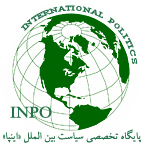زبان تخصصي : ( نظريه هاي روابط بين الملل3 ) 3International relations theories
Game Theory
A decision-making approach based on the assumption of actor rationality in a situation of competition. Each actor tries to maximize gains or minimize losses under conditions of uncertainty and incomplete information, which requires each actor to rank order preferences, estimate probabilities, and try to discern what the other actor is going to do. In a two-person zero-sum game, what one actor wins the other loses; if A wins, 5, B loses 5, and the sum is zero. In a two-person non-zero or variable sum game, gains and losses are not necessarily equal; it is possible that both sides may gain. This is sometimes referred to as a positive-sum game. In some games, both parties can lose, and by different amounts or to a different degree. So-called n-person games include more than two actors or sides. Game theory has contributed to the development of models of deterrence and arms race spirals, but it is also the basis for work concerning the question of how collaboration among competitive states in an anarchic world can be achieved: The central problem is that the rational decision for an individual actor such as a state may be to "defect" and go it alone as opposed to taking a chance on collaboration with another state actor. Dealing with this problem is a central concern of much of the literature on international regimes, regional integration, and conflict resolution (Viotti, P. and M. Kauppi, (eds.). 1987. International Relations Theory. Macmillan Publishing Company, New York).
Globalisation
Globalisation, as a theory, argues that states and societies are increasingly being 'disciplined' to behave as if they were private markets operating in a global territory. 'Disciplinary' forces affecting states and societies are attributed to the global capital market, transnational corporations (TNCs), and structural adjustment policies of the International Monetary Fund (IMF) and World Bank, which are all driven by neo-liberal economic ideology. Some scholars, such as Stephen Gill, see these agents as representing an emerging system of global economic governance ('disciplinary neo-liberalism') based on a quasiconstitutional framework for the reconstitution of the legal rights, prerogatives, and freedom of movement for capital on a world scale ('new constitutionalism'). See Gill, S. 'New Constitutionalism, Democratisation and Global Political Economy', in Pacifica Review 10, 1, 1998.
Globalism
An image of politics different from realism and pluralism. Globalism focuses on the importance of economy, especially capitalist relations of dominance or exploitation, to understanding world politics. The globalist image is influenced by Marxist analyses of exploitative relations, although not all globalists are Marxists. Dependency theory, whether understood in Marxist or non-Marxist terms, is categorised here as part of the globalist image. Also included is the view that international relations are best understood if one sees them as occurring within a world-capitalist system (Viotti, P. and M. Kauppi, (eds.). 1987. International Relations Theory. Macmillan Publishing Company, New York).
 پايگاه تخصصي مطالعاتي INPO مكاني صرفاً علمي و آكادميك جهت استفاده اساتيد، دانشجويان و علاقمندان حوزه سياست بين الملل (روابط بين الملل، مطالعات منطقهاي، علوم سياسي، حقوق بین الملل و سایر گرایشهای مرتبط)، که با هدف توسعه و ترویج روزافزون گرایشات آکادمیک در حوزه سیاست بین الملل راه اندازی شده است. این پایگاه بدون شک در آینده ای نزدیک با کیفیتی بالاتر و با استفاده از نظرات اندیشمندان این حوزه حضوری چشم گیرتر در صحنه آکادمیک کشور ایفا خواهد نمود. اين پايگاه در نظام ساماندهي وب سايت های وزارت فرهنگ و ارشاد جمهوري اسلامي ايران به ثبت رسيده و در چارچوب قوانين ج.ا.ايران فعاليت خواهدداشت.
پايگاه تخصصي مطالعاتي INPO مكاني صرفاً علمي و آكادميك جهت استفاده اساتيد، دانشجويان و علاقمندان حوزه سياست بين الملل (روابط بين الملل، مطالعات منطقهاي، علوم سياسي، حقوق بین الملل و سایر گرایشهای مرتبط)، که با هدف توسعه و ترویج روزافزون گرایشات آکادمیک در حوزه سیاست بین الملل راه اندازی شده است. این پایگاه بدون شک در آینده ای نزدیک با کیفیتی بالاتر و با استفاده از نظرات اندیشمندان این حوزه حضوری چشم گیرتر در صحنه آکادمیک کشور ایفا خواهد نمود. اين پايگاه در نظام ساماندهي وب سايت های وزارت فرهنگ و ارشاد جمهوري اسلامي ايران به ثبت رسيده و در چارچوب قوانين ج.ا.ايران فعاليت خواهدداشت.